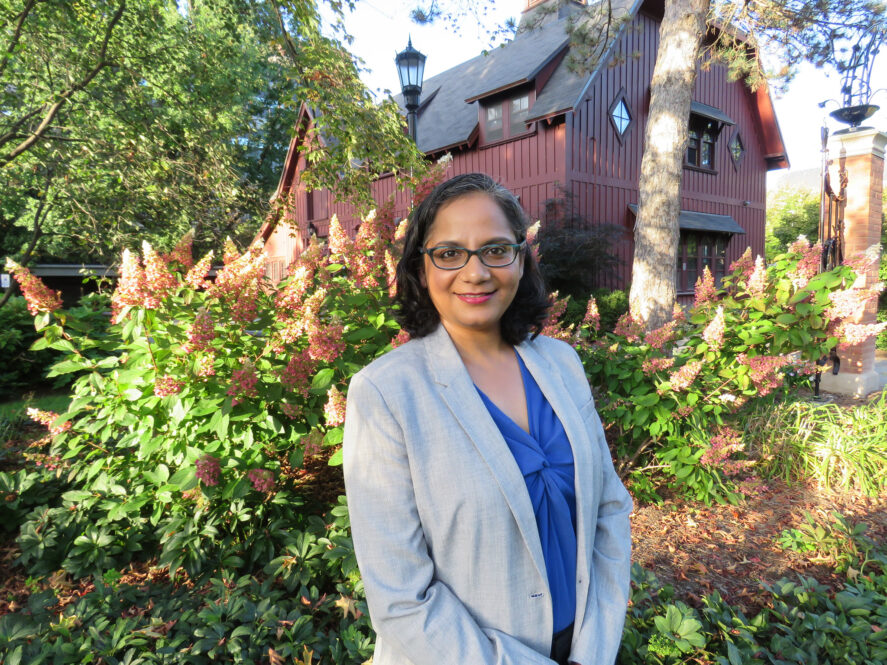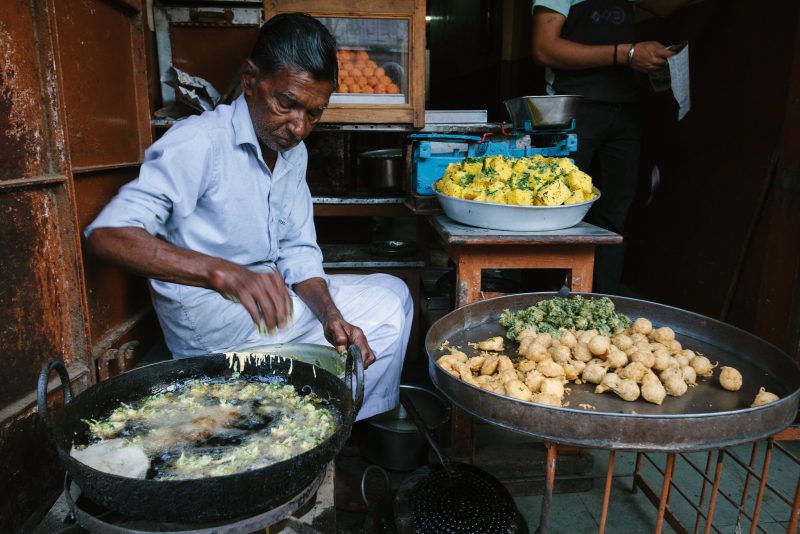Alumna Uses Research to Tackle Health Disparities

After working on field-based research projects in rural India for more than five years, Anaka Aiyar’s career took a new turn when she moved to the United States to pursue a PhD in economics at the University of California. Driven by a passion for positively impacting the lives of underprivileged people, she later joined the Tata-Cornell Institute for Agriculture and Nutrition (TCI) as a postdoctoral associate working at the intersection of food, nutrition, and economics. Now an assistant professor of economics at the University of Nevada, Reno, Aiyar is focused on improving healthcare access for people living in resource-poor contexts.
From a young age, Aiyar was interested in fixing problems around healthcare in India and was actively involved in several aspects of policy research. In India, she worked in the field with organizations looking to improve health, livelihoods, and education for the rural poor. She observed that health was one of the most important assets of the underprivileged and played a defining role in determining long-term economic outcomes for families.
“In families where the head of the household is sick, there is a struggle every day for food, and children are pulled out of school to find work and fend for themselves and others in the family,” she explained.
In developing countries, health concerns not only from undernutrition but also obesity, are a challenge, said Aiyar. “In India, malnutrition and stunting are pervasive – 40 percent of children are underweight – but obesity has been increasing as well, with nearly 22 percent of adults now overweight,” she said.
“My research shows that children from disadvantaged caste groups in India face a dual effect of caste—one that comes from lower health endowments at birth and a second that comes from lower post-birth inputs,” Aiyar said. “These effects reinforce each other leading to large within-country disparities in health.”
To provide practitioners, policymakers, and academics with new insights into what drives access to healthcare and consequently health outcomes, Aiyar focuses her research on healthcare and nutrition policy. As an assistant professor at the University of Nevada, she studies the structural barriers to healthcare access on the development of health capital.
“My research shows that children from disadvantaged caste groups in India face a dual effect of caste—one that comes from lower health endowments at birth and a second that comes from lower post-birth inputs,” Aiyar said. “These effects reinforce each other leading to large within-country disparities in health.”
As a postdoctoral associate at TCI, Aiyar co-authored a study on the relationship between urbanization and India’s rising obesity burden in the journal Economics & Human Biology. The paper showed that the rise in rural obesity in India is closely associated with the urbanization of its rural spaces.
After the start of the COVID-19 pandemic, Aiyar and TCI Director Prabhu Pingali authored an opinion piece in the journal Food Security. They argued that a proactive approach that integrates one-health knowledge on zoonotic diseases with food safety measures is key to preventing future pandemics.
Aiyar’s time at TCI has proven to be formative. She uses examples from her work at TCI while teaching courses on health economics and statistics, and draws on the experiences of both her own research and TCI researchers for a graduate-level course on econometrics.
“The mentorship from TCI Director Prabhu Pingali and other staff during my postdoctoral days was very valuable,” Aiyar said. “TCI gave me the platform to meet scholars and research practitioners from different fields and get exposure to interdisciplinary research methods. It broadened my view on nutrition and ag research and gave me a holistic experience to develop as a researcher.”
Featured image: Anaka Aiyar at Cornell University. (Photo by Jessica Ames/TCI)





